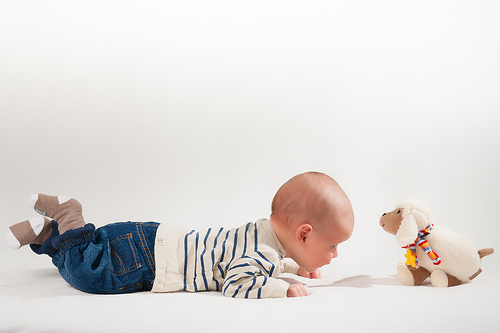Top Ten Baby Girl Names 2012
When having a baby, choosing the right name can be a long and difficult process. A name is something that your child will have for the rest of their life. It is important to pick the right one. Based on statistics gathered by the Social Security Administration, the top ten most popular baby girl names so far in 2012 are:
10
Chloe
Origin: Greek
The meaning of Chloe is “green shoot.” During the Classical period the name Chloe symbolized the fertility goddess.
9
Mia
Origin: Danish or Swedish
The name Mia doesn’t really have any intrinsic meaning to it. It sometimes is used as a nickname for the name Maria. In the Spanish and Italian languages, Mia, could be taken as indicating possession as in “my.”
8
Madison
Origin: Old English
In Old English, the meaning of Madison is “son of a mighty warrior.” Ever since the early 1990’s Madison has been one of the top girl names in the United States. It has been suggested by analysis that the popularity of the name could be partially attributed to the film “Splash,” which features a mermaid heroine with the same name.
7
Abigail
Origin: Hebrew
The name Abigail means “father’s joy.” In the bible, Abigail was the wife of King David as described in the Hebrew Bible in the book of Samuel. She was said to be incredibly intelligent and beautifully and possibly one of the most influential female prophets in the Bible. The name Abigail is commonly shortened to Abby, Aby, Abbie, or even Gail, although that is less common in recent years.
6
Emily
Origin: Latin
The name Emily is a derivation of the name Amelia. Amelia is a classical Roman family name that is believed to have resulted from the name Aemulus, which means “emulating.” Over the last 10 years the name Emily has continued to be one of the top names in the United States. Some famous people with the name Emily include: Emily Dickinson – Author, Emily Watson – Actress, and Emily Davison – British women’s suffrage supporter.
[adsense]
5
Ava
Origin: Possibly Germanic, but unknown
The origin of the name Ava is not entirely known. It could possibly be entirely a modern inception, or it possibly could have formed as a variant of the name Eve or Eva. In Persian the name Ava means “pleasant sound.” The name Ava has been relatively popular since the 1950’s when actress Ava Gardner reached the peak of her popularity.
4
Olivia
Origin: Latin
The name Olivia is Latin for “Peace of the olive tree.” Society often attributes intelligence to the name Olivia. Although not typically the case, the name Olivia itself is a nickname for people named Elizabeth. It is considered simple, elegant, and easy to say. Some common nicknames for individuals named Olivia is “Liv.”
3
Emma
Origin: German
The meaning of the name Emma is “all containing” or “universal” depending on whom you ask. Some people believe the name Emma evolved as a diminutive of Emmanuelle. The name has been popular since the 1816 novel by Jane Austen named “Emma.” The foundations of the story were the inspiration for the modern movie “Clueless.”
2
Isabella
Origin: Hebrew
Isabella has long been a name of royalty. Throughout history there have been multiple queens with the name Isabella. Queen Isabella of Castile is perhaps one of the most famous. She helped forge the unification of Spain alongside her husband Ferdinand of Aragon. Also among her accomplishments was her patronizing of Christopher Columbus on his first voyage to America. Isabella is also a recurring name in many Shakespeare’s stories and plays. The meaning of the name Isabella is “My God is a vow.”
1
Sophia
Origin: Greek
The meaning of the name Sophia is simple; it means “wisdom.” It has been the number one girl’s name in the United States for nearly the last decade. Not only is it popular in the United States it is also immensely popular around the world. It has also been a top ten name in Canada over the last decade; a top 50 name is Australia during this same time frame, and top 100 name in England. The source of its recurrence in popularity isn’t quite known. It has been used regularly in English-speaking countries since roughly the 17th century.
Source: Parenting



